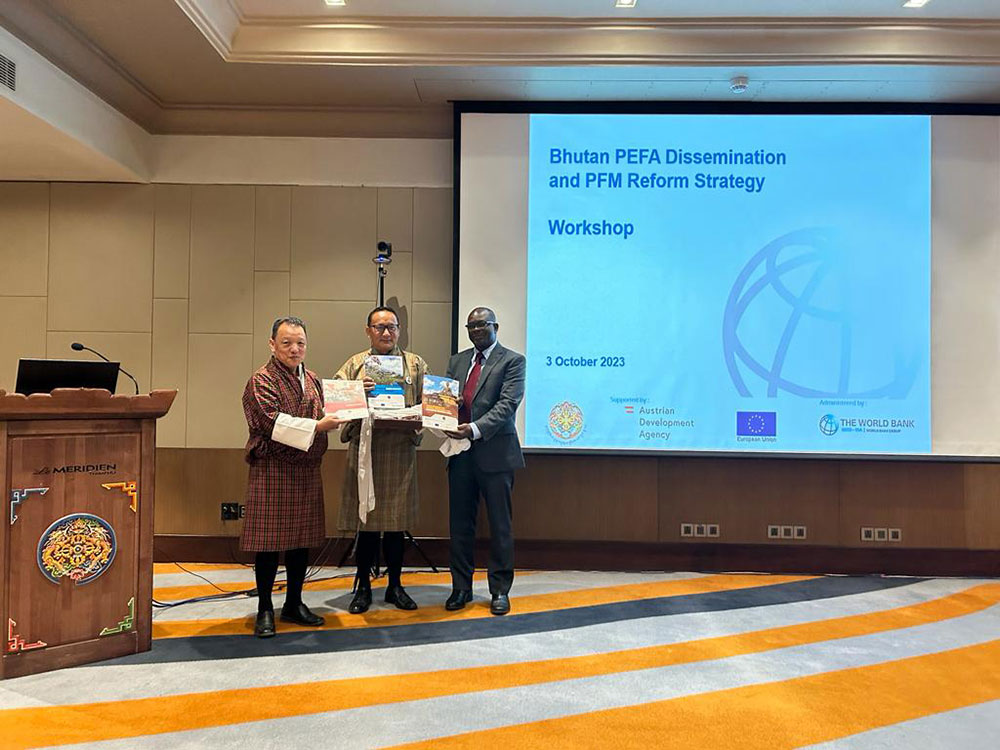Staff reporter
Bhutan and the World Bank jointly launched the Public Expenditure and Financial Accountability (PEFA) Performance Assessment Report 2023 yesterday.
The report consists of the public financial management (PFM) performance assessment, climate-responsive PFM performance assessment, and gender-responsive PFM performance assessment.
By launching the report, the finance ministry in a press release stated that Bhutan has become the first country in South Asia and a part of very few countries in the world who have undertaken PEFA++. The report was an outcome of a regular public financial management assessment based on the internationally recognised PEFA assessment framework.
According to the finance ministry, the report updates, evaluates and assesses the progress of the PFM across the budgetary agencies since the last assessment in 2016.
“Based on the assessment, a PFM Reform Strategy and Action Plan will be formulated for implementation in the next five years (2023-28),” it added.
The report finds improvement in areas of controls in budget execution, management of financial assets, debt procedures, accounting, reporting and transparency and auditing, compared to the last assessment conducted in 2016.
Moreover, the transfers to local governments are made in transparent and rules-based criteria which helps in improved management, allocation, and distribution of public funds for improved service delivery for the benefit of the people.
Bhutan has undertaken several significant reforms under a multi-donor fund since the last report in 2016.
The reforms included the rollout of country-wide digital payments by the Government electronic Public Expenditure Management System (e-PEMS) which were extremely critical during the COVID-19 outbreak as people were able to receive funds digitally and did not have to collect cheques.
Additionally, there was an implementation of International Public Sector Accounting Standards (IPSAS), Phases II and III of the development and implementation of the electronic government procurement or e-GP system, strengthening of internal controls at decentralised levels through the creation of Cluster Finance Services, strengthening internal audit, and improving budget documentation to include gender and climate-related aspects.
“We are committed to good governance, and sound public financial management is a critical element. Using PEFA assessments as a basis, we shall continue to pursue PFM reforms for the enhanced service delivery and ultimately achieve our national objectives” Acting Finance Secretary, Leki Wangmo said.
The report was completed with support from the European Union and Austrian Development Agency.
The workshop was attended by parliamentarians, oversight bodies and budgetary agencies involved in the PFM including climate and gender agencies.


